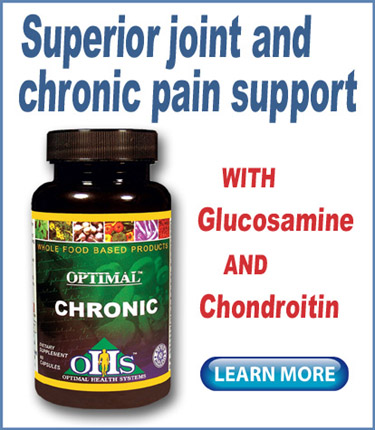Glucosamine supplements have long been known as a natural remedy for joint pain; however, a new study is shedding light on a surprising new health benefit for those who take it.
Namely, it appears when taken regularly glucosamine also lowers a person’s risk of cardiovascular disease (CVD).
The study, titled Association of habitual glucosamine use with risk of cardiovascular disease: prospective study in UK Biobank, was published in the British Medical Journal (BMJ) in May.
The study was conducted by a collaboration of researchers associated with Tulane University in New Orleans; Harvard University in Boston; and Harbin Medical University in Harbin, China.

Anti-inflammation properties appear to also benefit heart
The researchers reviewed data on almost 100,000 people who took a glucosamine supplement regularly. They found that glucosamine users were less likely to develop heart and artery diseases or stroke—or to die from the conditions.
The researchers adjusted the list for a number of co-founders to improve accuracy. But even with the adjustments, the end result was that glucosamine-takers were about 15% less likely to develop heart disease or have a stroke.
For the sake of comparison, a 15% drop, though significant, is considerably smaller than the heart benefit a smoker would receive for giving up smoking. Experts assert smoking increases the risk of heart disease by 24%. Still, heart health involves many parts, and glucosamine supplementing may prove to be a valuable component.
Experts postulate that the same inflammation-reducing properties that are so effective on joints are also helpful in reducing heart inflammation.
A large and diverse survey group
Though the study was conducted by a diverse mix of researchers, all the data was pulled from the “UK Biobank”—a national survey questionnaire tracking health and nutrition practices of the UK population.
The UK Biobank was started in 2006, and by 2010 had met the goal of acquiring almost 500,000 participants between the ages of 40 and 69. The tracking will continue for a period of 30 years.
As with all ground-breaking studies yet to be confirmed by additional studies, the researchers have cautioned that more and longer studies are needed.
Most notably, research will need to determine whether glucosamine users tend to just generally be more healthy to start with—rather than the glucosamine itself causing the significant health benefit. Nevertheless, the initial findings are extremely promising.
When taking a glucosamine supplement, consider only proven, quality products like Optimal Chronic from Optimal Health Systems.
Optimal Chronic features two different types of glucosamine, along with chondroitin and other anti-inflammatory nutrients, in its proprietary formula.
More information on the study is provided at the BMJ research page here.

